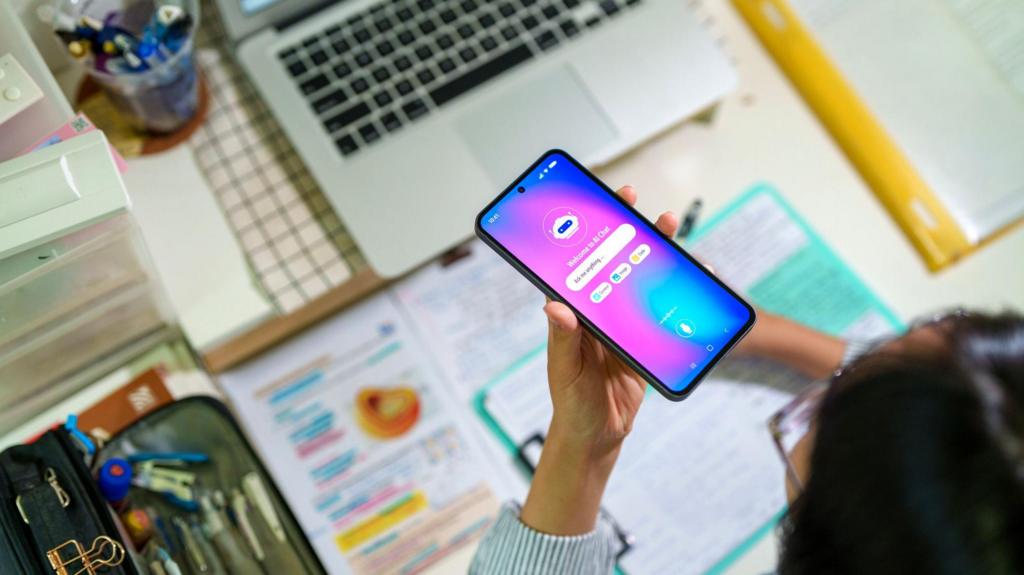Sundar Pichai, CEO of Google’s parent company Alphabet, has cautioned against “blindly trusting” AI tools, emphasizing their potential for inaccuracies in an interview with the BBC.
Speaking exclusively to the BBC, Mr. Pichai acknowledged the error-prone nature of current AI models, advocating for their use in conjunction with other reliable sources of information.
He stressed the importance of a diverse information ecosystem, where individuals don’t rely solely on AI for their understanding of the world.
“This is why people also use Google search, and we have other products that are more grounded in providing accurate information,” Mr. Pichai stated.
However, some experts contend that major technology companies like Google should prioritize improving the reliability of their AI systems, rather than placing the onus on users to verify the output.
While recognizing the utility of AI tools for creative tasks, Mr. Pichai advised users to “learn to use these tools for what they’re good at, and not blindly trust everything they say.”
“We take pride in the amount of work we put in to give us as accurate information as possible, but the current state-of-the-art AI technology is prone to some errors,” he told the BBC.
Google includes disclaimers on its AI tools, alerting users to the possibility of inaccuracies.
Despite these measures, the company continues to face criticism regarding errors generated by its AI products.
The rollout of Google’s AI Overviews, intended to summarize search results, was met with backlash and ridicule due to inaccurate and unreliable responses.
The tendency of generative AI, like chatbots, to disseminate misleading or false information is a concern shared by many experts.
Gina Neff, professor of responsible AI at Queen Mary University of London, told BBC Radio 4’s Today programme, “We know these systems make up answers, and they make up answers to please us – and that’s a problem.”
“It’s okay if I’m asking ‘what movie should I see next’, it’s quite different if I’m asking really sensitive questions about my health, mental wellbeing, about science, about news,” she added.
Professor Neff urged Google to take greater responsibility for the accuracy of its AI products, rather than shifting the burden to consumers.
“The company now is asking to mark their own exam paper while they’re burning down the school,” she said.
The tech industry has eagerly anticipated the launch of Google’s latest consumer AI model, Gemini 3.0, aimed at regaining market share from ChatGPT.
Google unveiled the model on Tuesday, proclaiming it would usher in “a new era of intelligence” at the core of its products, including its search engine.
In a blog post, the company stated that Gemini 3 boasts industry-leading performance in understanding and responding to various input modes like photo, audio, and video, alongside “state-of-the-art” reasoning capabilities.
In May, Google began integrating a new “AI Mode” into its search, incorporating its Gemini chatbot, which is designed to provide users with the experience of consulting an expert.
At the time, Mr. Pichai described the integration of Gemini with search as a “new phase of the AI platform shift.”
This move is part of the tech giant’s strategy to remain competitive against AI services such as ChatGPT, which have challenged Google’s dominance in online search.
His comments align with prior BBC research, which revealed that AI chatbots can inaccurately summarize news articles.
Content from the BBC website was fed into OpenAI’s ChatGPT, Microsoft’s Copilot, Google’s Gemini, and Perplexity AI, and the subsequent AI-generated answers were found to contain “significant inaccuracies”.
Wider BBC research has indicated that, despite advancements, AI assistants still misrepresent news approximately 45% of the time.
During his BBC interview, Mr. Pichai acknowledged the inherent tension between the rapid pace of technological development and the implementation of safeguards to prevent potential harm.
For Alphabet, Mr. Pichai stated that managing this tension involves being “bold and responsible at the same time.”
“So we are moving fast through this moment. I think our consumers are demanding it,” he said.
Mr. Pichai also noted that the tech giant has proportionally increased its investment in AI security alongside its investment in AI development.
“For example, we are open-sourcing technology which will allow you to detect whether an image is generated by AI,” he said.
Responding to questions about Elon Musk’s years-old comments to OpenAI’s founders – expressing concerns that DeepMind (now Google-owned) could create an AI “dictatorship” – Mr. Pichai stated that “no one company should own a technology as powerful as AI.”
However, he added that the current AI ecosystem includes numerous companies.
“If there was only one company which was building AI technology and everyone else had to use it, I would be concerned about that too, but we are so far from that scenario right now,” he concluded.
Advertisers are using AI to personalize adverts but not everyone agrees that’s a good idea.
Goods exports to the US rose for the first time in five months in October, jumping14.5% from September.
People with disabilities in Gloucestershire tell firms they want tech to become more personalised.
Delayed releases include Cells at Work! and Crayon Shin-chan the Movie: Super Hot! The Spicy Kasukabe Dancers, Chinese state media said.
Saving System has developed a device that it says can help firms save electricity.

